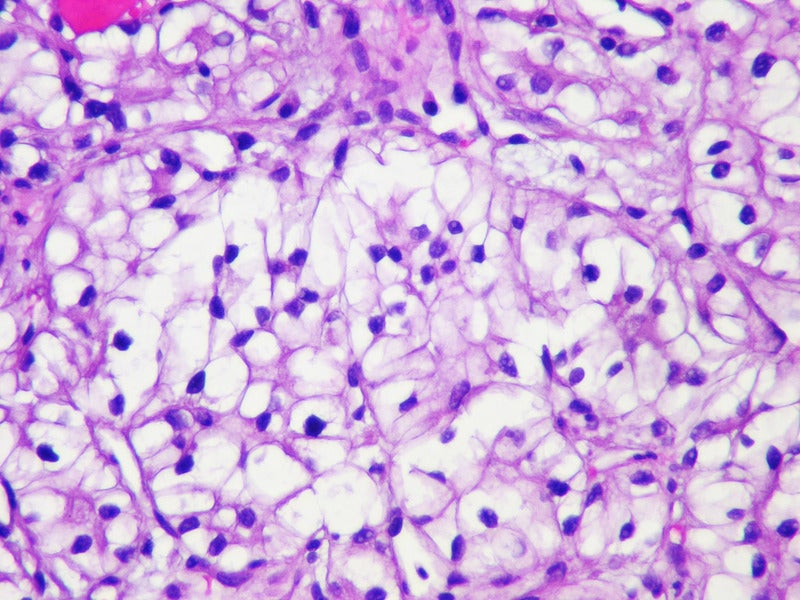
Merck has reported positive results from an interim analysis of the KEYNOTE-426 trial evaluating its Keytruda in combination with Pfizer’s Inlyta (axitinib) as the first-line treatment for advanced or metastatic renal cell carcinoma (RCC).
Findings demonstrated that the combination therapy significantly improved overall survival (OS) in patients with RCC, a type of kidney cancer. The drugs lead to a near 50% decrease in the risk of death compared to chemotherapy drug sunitinib.

Discover B2B Marketing That Performs
Combine business intelligence and editorial excellence to reach engaged professionals across 36 leading media platforms.
They were also found to improve progression-free survival (PFS) and objective response rate (ORR).
Treatment-related adverse events were observed in 62.9% of patients treated with the combination therapy, compared to 58.1% in the sunitinib arm.
Around 6.3% of patients in the investigational group had to discontinue treatment due to adverse events, while the proportion was 10.1% in case of participants treated with sunitinib.
Merck will present full results from the KEYNOTE-426 trial, along with data from its other trials, at the Genitourinary Cancers Symposium in San Francisco, US, from 14 to 16 February.

US Tariffs are shifting - will you react or anticipate?
Don’t let policy changes catch you off guard. Stay proactive with real-time data and expert analysis.
By GlobalDataMerck Research Laboratories president Roger Perlmutter said: “Merck is pursuing a broad clinical program in advanced cancers of the kidney, prostate and bladder with the goal of advancing new treatment options for patients afflicted by historically difficult to treat malignancies.
“The improvement in survival achieved with Keytruda in combination with axitinib for the first-line treatment of advanced renal cell carcinoma, which will be described in detail at the ASCO GU meeting, underscores this commitment.”
Keytruda is an anti-PD-1 therapy, while Inlyta is a tyrosine kinase inhibitor. KEYNOTE-426 was conducted as a randomised, double-arm, Phase III trial to investigate the safety and efficacy of the combination in 861 patients.
The trial’s dual primary endpoints were OS and PFS while the key secondary endpoint was ORR.
Additional secondary endpoints included disease control rate (DCR), patients experiencing or discontinuing the trial due to an adverse event (AE) and duration of response (DOR).





